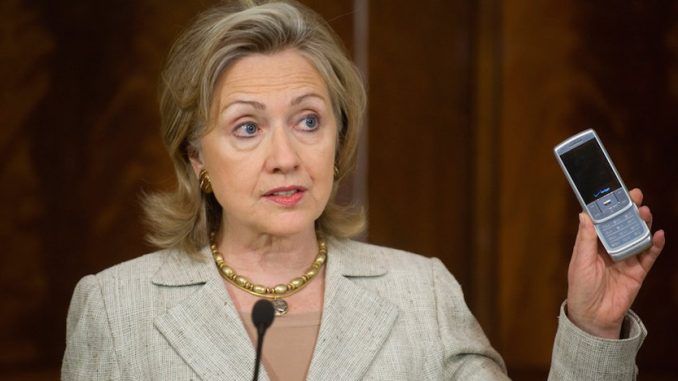
A member of Hillary Clinton’s staff working for the Clinton Foundation received Department of State classified information about the government of Congo in 2012, it has been revealed.
Clinton’s chief of staff, Cheryl Mills, emailed classified information to Clinton Foundations foreign policy director (a non-government role), Amitabh Desai, in July 2012, potentially breaking the law by doing so.
Freebeacon.com reports:

BYPASS THE CENSORS
Sign up to get unfiltered news delivered straight to your inbox.
You can unsubscribe any time. By subscribing you agree to our Terms of Use
The message, which was originally obtained by the group Citizens United through a public records request, is partially redacted because it includes “foreign government information” that has been classified as “Confidential” by the State Department.
Although the information was not marked classified by the State Department until this past summer, intelligence sources tell the Free Beacon that it would have been classified at the time Mills sent it because “foreign government information” is considered classified from inception.
The message could add to concerns from congressional and FBI investigators about whether former Secretary Clinton and her aides mishandled classified information while at the State Department.
The email, which discussed the relationship between the governments in Rwanda and the Democratic Republic of Congo, was originally drafted by Johnnie Carson, the State Department’s assistant secretary for African affairs, who sent it to Mills’ State Department email address.
Mills later forwarded the full message to Desai along with “talking points for Presient [sic] Clinton” shortly before Bill Clinton was scheduled to visit the region.
About half of the forwarded message was redacted due to its classified nature before the State Department released it to Citizens United last month. Although it is not clear what the redacted section includes, the State Department said in a court motion filed last week that it “concerns both foreign government information and critical aspects of U.S. foreign relations, including U.S. foreign activities carried out by officials of the U.S. Government.”
The State Department added that the “disclosure of this information has the potential to damage and inject friction into our bilateral relationship with African countries whose cooperation is important to U.S. national security.”

Be the first to comment